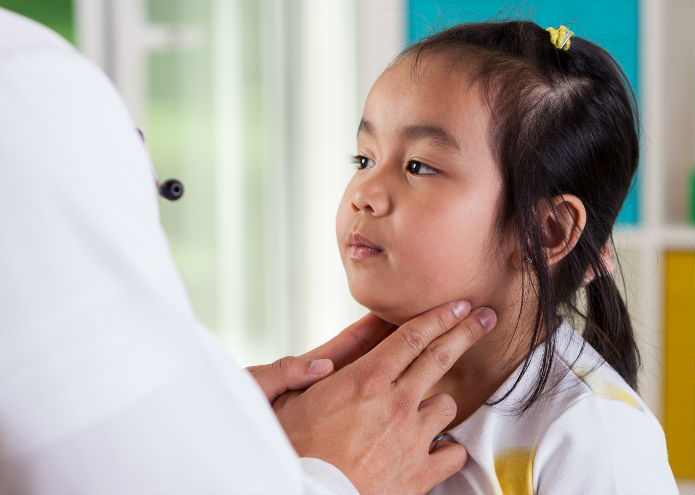Condition
Pediatric Aspiration
What You Need to Know
Aspiration is when something enters the airway or lungs by accident.
Key Symptoms
The most common symptoms of aspiration are:
- Choking or coughing while eating
- Voice that sounds wet after eating
- Slight fever after meals
- Complaints of food feeling stuck or coming back up
- Wheezing and other breathing problems
Diagnosis
Doctors typically diagnose aspiration by:
- Chest X-ray
- CT scan
- Modified barium swallow test (MBS)
- Fiber optic endoscopic evaluation of swallowing (FEES)
Treatment
Treatments may for aspiration may include:
- Making changes in position and posture during meals
- Dietary changes
- Swallowing exercises
- Medications
- Botox injection
- Surgery
Schedule an Appointment
Our pediatric specialists provide personalized care for your child’s physical, mental and emotional health needs. Meet our providers and schedule an appointment today.
Frequently Asked Questions
What is aspiration?
What causes aspiration in children?
What are the symptoms of aspiration in children?
How is aspiration in children diagnosed?
How is aspiration in children treated?
What are possible complications of aspiration in children?
When should I call my child's healthcare provider?
Meet the Providers Who Treat Aspiration
Departments that Treat Aspiration

Comprehensive Motility Program
The Motility Program works to help treat a number of motility issues impacting your child's digestive tract, including abdominal pain, aspirating, constipation and incontinence. Learn more about our Comprehensive Motility Program.

Help Kids and Make a Difference
Invest in future cures for some of life's most devastating diseases. Give today to help more children grow up stronger.

.jpg)







